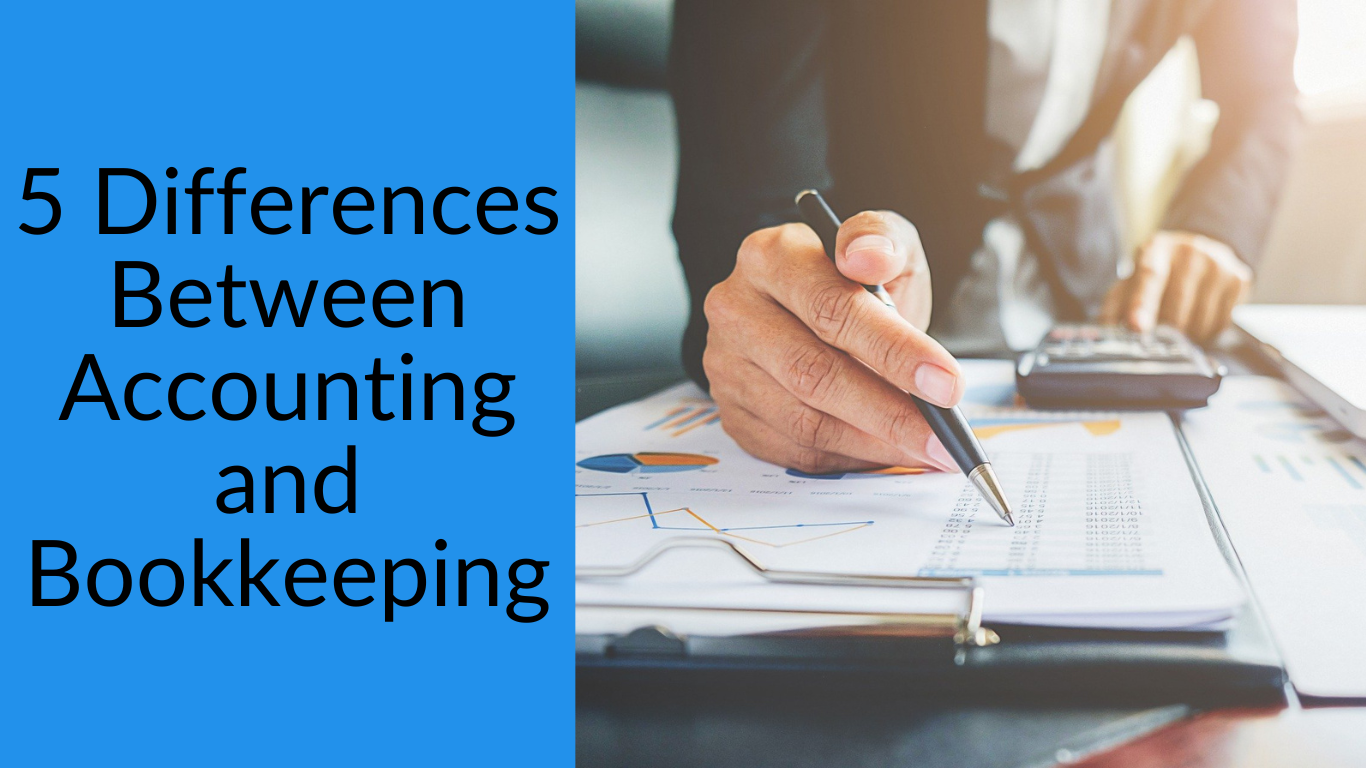5 Major Differences Between Bookkeeping and Accounting

I get asked a lot about the differences between bookkeeping and accounting. The two are essential financial functions for every business. Many people use them interchangeably and may not know the distinction between them.
Understanding the differences between bookkeeping and accounting is important for anyone looking to improve their business’s financial health.
So I’m going to share with you five major differences between bookkeeping and accounting.
- Bookkeeping involves recording, organizing, or categorizing transactions in a software program or a spreadsheet.
These transactions may include sales, purchases, payments, receipts, and more. The main objective of bookkeeping is to ensure that every transaction is accurately recorded and classified into the appropriate accounts. Hence maintaining accurate and up-to-date records of all the financial activities of a business.
Now, an accountant would take that a step further and make adjusting entries, by analyzing and interpreting the financial data, because it’s not really just the income or revenue and expenses that make up the books. They also make adjusting entries to correct any errors or omissions in the financial records. These entries ensure that the financial statements accurately reflect the financial performance of the business.
- Bookkeepers are responsible for managing the day-to-day financial transactions of a business. They send out invoices to customers or clients, follow up on payments, and make payments to vendors. Their primary focus is on accurately recording transactions and maintaining financial records.
However, a small business accountant takes the financial management process to the next level. They analyze the cost of doing business, and the cost of operations, and determine profit margins. This information helps businesses make informed decisions about pricing, expenditures, and investments.
For example, a bookkeeper may record an invoice due in 30 days, but an accountant will look at the bigger picture. They will analyze the profitability of the business by calculating the cost of goods sold, expenses, and revenue. This analysis will help determine whether the business is profitable, and if not, where adjustments need to be made.
- Bookkeepers are responsible for reconciling bank statements and identifying any discrepancies. On the other hand, accountants use financial data to provide valuable insights and advice to their clients.
Accountants use the financial records maintained by bookkeepers to analyze the financial health of a business. They can identify trends, forecast future performance, and provide strategic advice for short-term and long-term planning.
For example, an accountant may analyze a business’s revenue and expenses over the past year and identify areas where costs can be reduced. They may also recommend investment strategies that will improve the financial performance of the business. Additionally, they can help businesses prepare for tax season and ensure compliance with tax laws and regulations.
- Bookkeepers generate financial statements for businesses. Using software such as QuickBooks, bookkeepers can easily generate income statements, balance sheets, and cash flow statements with just a click of a button, provided the system is set up correctly.
However, accountants go beyond just generating these financial statements. They review and analyze them to provide valuable insights into the financial performance of the business. They can identify areas of financial strength and weakness, and recommend improvements.
For instance, an accountant may analyze the income statement to identify any areas where costs can be reduced, or where sales can be increased. They may also review the balance sheet to ensure that the business has sufficient cash reserves and is not carrying too much debt. Additionally, they can use the cash flow statement to forecast future cash flows and identify potential cash flow problems.
- A bookkeeper generates financial statements and helps in collecting and organizing tax-related documents. This includes tax documents from vendors and suppliers, such as 1099 forms. Once the bookkeeper has collected all the necessary tax documents, they send them to the accountant, who will use the information to prepare and file tax returns. The accountant will also provide tax planning advice and help businesses optimize their tax strategies.
For example, an accountant may advise a business to make certain tax-deductible investments or to structure their business in a way that minimizes their tax liability. They may also provide guidance on complying with tax laws and regulations.
Those are the five major differences. So you can see that a bookkeeper is really not the same as an accountant. So you may be the business owner and you only have a bookkeeper. Well, it’s also important to consider getting a small business accountant right. So you could have your bookkeeper doing all the recordings and making sure your bank statements are reconciled every month, but an accountant goes so much more.
How RCN CPAs and Business Advisors can help
RCN CPAs and Business Advisors offer a full range of accounting services including tax planning, preparation, and CFO services. We help you get your finances in order. Schedule a 15-minute call with us to find out more about what we can do for you, we can help you manage all your financial needs.






